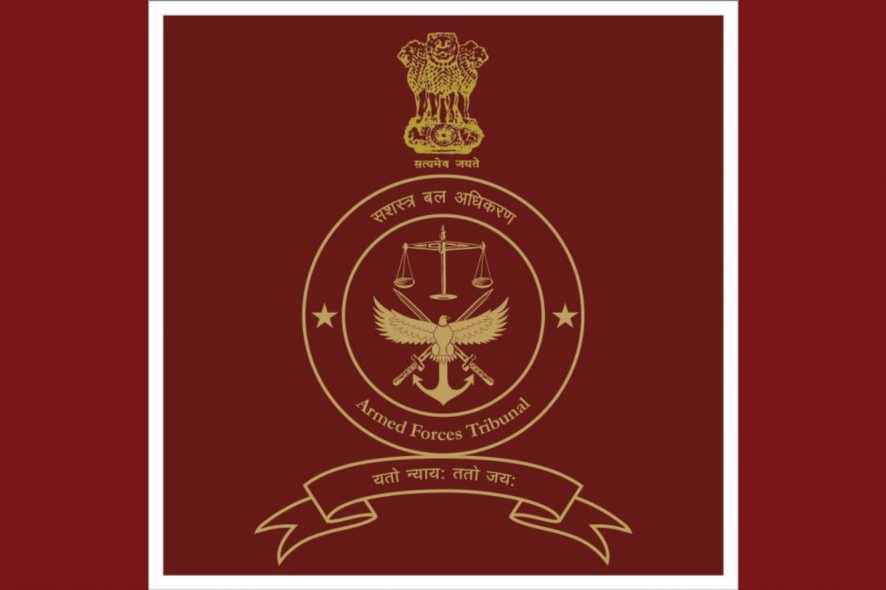Armed Forces Tribunal: The Coram of Justice SVS Rathore (Judicial Member) and Air Marshal BBP Sinha (Administrative Member) set aside the order of Principal Controller of Defence Accounts, Allahabad (PCDA-P) rejecting disability pension to an ex-sepoy.
Applicant herein, who joined the Indian Army as a sepoy in 1999, was admitted to Medical Hospital during his service period. The Invalidating Medical Board (IMB) categorized his disease as ‘Generalised Seizures –V-72 (Permanent)’ and assessed it as 20 percent for two years; holding it to be ‘neither attributable to nor aggravated by military service’ (NANA). The applicant was discharged from service in 2002, but his case for disability pension was rejected by the PCDA (P) in 2003. Hence, the instant application.
Learned counsel for the applicant, Mr Vinay Kumar Pandey, submitted that since the applicant was enrolled in medically fit condition and was thereafter discharged in ‘low medical category’, therefore his disability should be considered as attributable to and aggravated by military service and he should be granted disability pension. Further, IMB had not cited any reason for nonconnection of applicant’s disability with service in the Army.
Dr Shailendra Sharma Atal, learned counsel for the respondent submitted that as per Para 173 of the Pension Regulations (Part-I) 1961, the applicant was not entitled to any disability pension since the same is admissible only to an individual who is invalided out from service on account of disability attributable to military service.
The Tribunal noted that the applicant was enrolled in Army in a medically fit condition and discharged after 03 years and 233 days of service in low medical category. Respondent had not produced any document to prove that the disability/disease existed at the time of enrolment. The disease has started after more than two years of service, and the reason for declaring the disease as NANA was very cryptic i.e. ‘not connected with military service’. The said statement did not convey clearly as to why the disease had been declared as NANA.
Relying on the judgment of Dharamvir Singh v. Union of India, (2013) 7 SCC 316 it was held that benefit of doubt must be in favour of the applicant and his disease be considered as attributable to military service.
Since IMB had assessed applicant’s disability as 20 percent for two years, therefore, in view the judgment of Veer Pal Singh v. Ministry of Defence, (2013) 8 SCC 83, applicant’s case was recommended for the reassessment of further element of disability pension by Re-survey Medical Board, if any. The application was partly allowed holding the applicant entitled to disability pension at 20 percent for two years from the date of his discharge.[Satyendra Kumar Singh v. Union of India, 2019 SCC OnLine AFT 1029, Order dated 27-03-2019]







no
MADAM ES JUDGEMENT KE BAAAD AB NANA CASE WALO KO AFT MAIN CASE FILE KARNE KI JARURAT HIA KYA ?
Whether this judgement is applicable for those ex recruit who were discharged from IAF during 2006/07 on the basis of opinion of IMB on the basis of NANA and disability granted 20 percent for 5 years. Please intimate/reply as early as possible…. Thanks